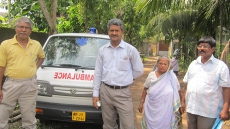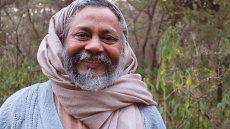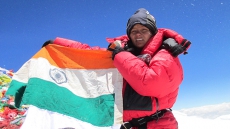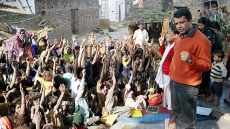Although gender imbalance exists within different brackets around the world, in the global south it becomes extensively severe due to its systematic nature extending to various dimensions
There is nothing unusual about what Ghulam Sughra Solangi experienced during the foundational years of her life- child marriage, early pregnancies and divorce are events that females and families hear or experience in Pakistan, India and Afghanistan. What’s unusual however, was her reaction to cultural domination and female subjugation, and her actions to eliminate factors impeding female independence. A forced marriage at age 12 and divorce at 20 with two kids were no deterrents in keeping Solangi succumbed to conventional practices normalized as culture in modern times and this in fact is the very trend she seeks to break with her organization, Marvi Rural Development Organization (MRDO).
“I believe that you make thousands of decisions every day. Some are simple, such as hitting snooze on the alarm clock or choosing what to eat for breakfast, while others – like deciding who to marry, or what career to pursue – require deep reflection, thought and analysis,” Solangi states while discussing rights for females in her country, Pakistan.
Although gender imbalance exists within different brackets around the world, in the global south it becomes extensively severe due to its systematic nature extending to various dimensions. For women in Pakistan this translates into lower share of employment, lack of social policies in health and education, and a handicapped legal infrastructure making them dependent on a culturally conservative society.
Solangi shares the sentiment while discussing her post-divorce experience that made her and her two children dependent on her parents. “After moving back home with my parents, I felt rejected and humiliated and was near suicide, but I kept going. I expressed a desire to learn, but largely due to cultural norms, I was discouraged by my brothers.” Within the complex rigid structure of such societies, women like Solangi are outcast with limited options for survival. But Solangi was firm on pursuing education and without any support and background in formal education, she successfully managed to graduate from High School and went on to get a Bachelor degree in Education. Solangi describes this milestone as the inception towards her goal of catering to the welfare of rural women and their rights through MRDO.
Her extensive work targeting reformation in the social status of females and poor families in the rural grounds of Sindh in South Eastern Pakistan, garnered her the International Women of Courage Award by Michelle Obama, former First Lady of US, and Hillary Clinton, former Secretary of State. Since its inception MRDO has implemented 59 projects and reached 580,324 direct beneficiaries in nine districts of the Sindh and Punjab Province.

So far, the organization has systematized thousands of men and women into groups working within pockets of Sindh, participating in communities to decrease male-female education ratio, promoting micro-credit and enterprise development programs, and giving females the power of resisting early marriage. Solangi believes a well educated woman can galvanize not only her own confidence towards basic human rights but also those of her peers. “Women and girls, especially girls, need to know their rights and their own self-worth. Education is, therefore, extremely important in promoting the confidence and self-esteem of girls as they grow into young women,” she says.
She also underlines the pressing issue of an overpowering grip of feudal power within rural regions and lack of federal control over the marginalized sections of the country. The missing gap creates flourishing grounds for predators to indulge into criminal activities without fear of punishment. “Given the alarmingly high levels of violence worldwide, women and girls need better protection from violence in the home and in the street. This is especially important when they walk long distances to fetch food or water for the family. And this is not just an issue for developing countries.” And let’s not forget religious orthodoxy rooting women as subordinate to men as a major gridlock in taking the gender equality debate forward.
World Economic Forum’s Gender Gap Index places Pakistan second to last out of a total of 144 countries evaluated in 2016. Indeed, the numbers are distressing but there are individuals such as Ghulam Sughra Solangi, Sharmeen Obaid and Malala Yousafzai continuously stirring the debate on critical issues such as honour killing, education and gender equality, and making an impact in their own way.








